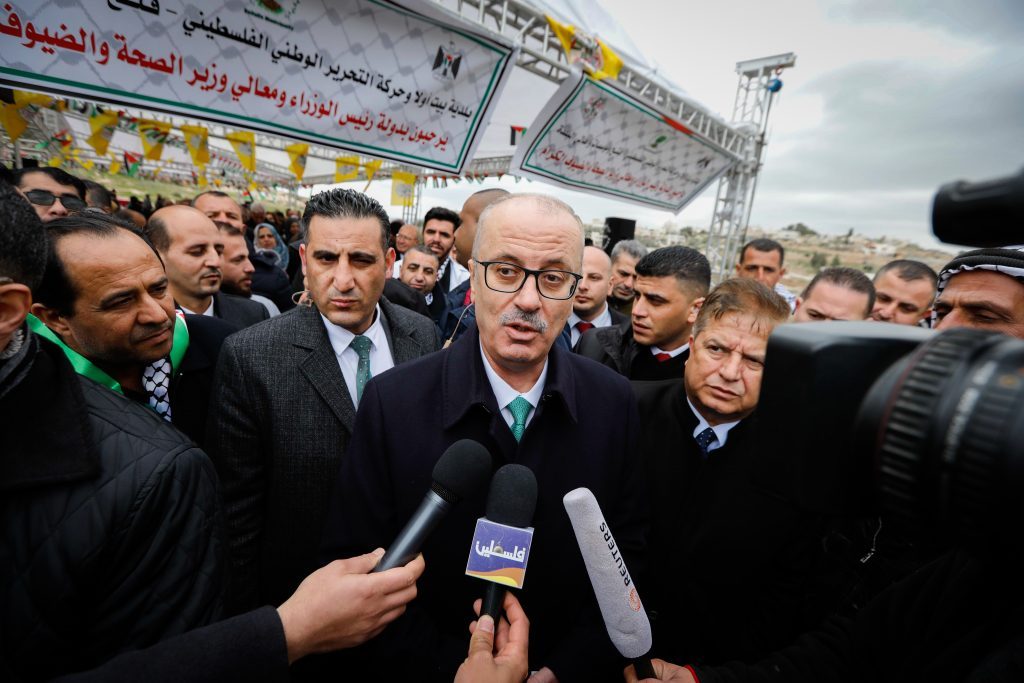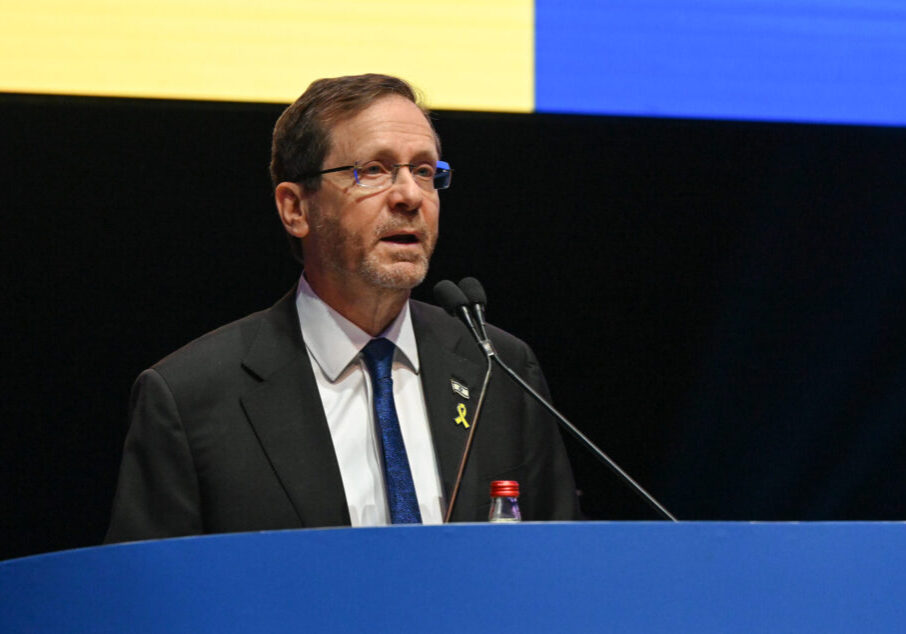Australia/Israel Review
Behind the News – March 2019
Mar 1, 2019 | AIJAC staff

Rocket and Terror Report
The brutal murder and reported rape of 19-year-old Ori Ansbacher in Jerusalem on Feb. 7 has been declared a terrorist attack by the Israel Shin Bet security service. A suspect, Hebron resident Arafat Irfayia, has reportedly confessed to the murder, telling investigators that he wanted to be a “martyr”.
Since mid-January, only a single rocket has been fired into Israel from Gaza, although large-scale clashes continue along the Gaza border and attempted stabbings have been a weekly occurrence throughout the West Bank.
PA rejects US aid, risks security cooperation
The Palestinian Authority (PA) announced on Jan. 20 that it would refuse all financial aid from the US, including the US$61 million Washington provides in security assistance to the Palestinians, as the US began implementing the Anti-Terrorism Clarification Act (ATCA). The new US law, which was passed in October, exposes the PA to potentially costly lawsuits for involvement in terrorist activities should it continue to accept US assistance.
As a result, the future of the 14-year US Security Coordinator (USSC) mission to the PA is now in jeopardy, as is the stability such training and security coordination has brought to the West Bank. While security cooperation will continue for the time being, training has been halted. Alternative sources of funding are reportedly being explored, including through new US legislation.
PA Government resigns
On Jan. 29, Palestinian Authority (PA) Prime Minister Rami Hamdallah, together with the PA Cabinet’s other ministers, collectively resigned.
The resignations came two days after the Fatah Central Committee recommended the formation of a government made up of representatives of factions in the Palestine Liberation Organisation (PLO) and independent personalities, leaving out Hamas, a terrorist organisation that is the de facto ruler of the Gaza Strip.
Azzam al-Ahmad, a senior Fatah and PLO official, said this was in response to “Hamas’ failure to undertake its national responsibility in handing over the Gaza Strip to the legitimate PA.”
The outgoing PA government was formed in 2014 with the support of both Fatah and Hamas.
All of this is seen by observers as part of octogenarian PA President Mahmoud Abbas’ opaque succession strategy.
Israel facilitates Qatari payments to Gaza
On Jan. 24, Israel allowed a third payment of US$15 million from Qatar to be transferred to Gaza, after holding it up for a number of days due to escalating violence along the Israel-Gaza border.
Hamas initially refused to receive the funds, stating it would not be exposed to Israeli “political blackmail”, referring to the controversy in Israel over the Security Cabinet’s decision to approve the delivery of the money after a three-week delay.
Mohammed El-Amadi, the head of Qatar’s Gaza Strip Reconstruction Committee, held meetings with Hamas leaders resulting in the decision to allow the money into Gaza to fund humanitarian and infrastructure projects there, as well as to support at least 50,000 families in Gaza who will receive US$400 in four instalments.
However, Qatar’s envoy to Gaza declared on Feb. 18 that Qatari funding to supply fuel for Gaza’s power plant would finish in April.
BDS linked to terror organisations
On Feb. 3, the Israeli Ministry of Strategic Affairs released a comprehensive report entitled “Terrorists in Suits” detailing the deep links between the Boycott, Divestment, Sanctions (BDS) movement and widely proscribed Palestinian terrorist groups, especially the Popular Front for the Liberation of Palestine (PFLP), Hamas, and Palestinian Islamic Jihad. The report documented that the three terror groups had placed dozens of their members in senior positions in at least 13 important BDS-promoting NGOs, using these positions to get audiences with Western politicians and substantial funding from European countries.
Observer Force presence in Hebron ended
On Jan. 28, Israeli Prime Minister Binyamin Netanyahu ended the mandate of the Temporary International Presence in Hebron (TIPH) observer force after 22 years. Comprised of 64 international civilian observers and 13 locals, the unit was deployed in the aftermath of the 1994 massacre of Muslim worshippers in Hebron by Jewish terrorist Baruch Goldstein. According to the agreement which established the group to observe and report on the situation in Hebron, its mandate must be renewed by both sides every six months.
The decision to end TIPH’s mandate comes after recent publicised incidents where one TIPH member slapped a 10-year-old Jewish boy, while another TIPH member was found to have slashed the tyres of a Jewish resident’s vehicle. Turkish members of the force have proven particularly controversial in recent years.
Israel’s Syria strikes yield results
According to Israel’s military intelligence assessments, Israel’s intensified campaign of airstrikes in Syria over the past 18 months has driven Iran to change its strategy and move the bulk of its troops and bases in Syria away from the Israeli border and towards Iraq, which it views as a safer location.
At the same time, however, the report also noted that Iran appears to be adopting a more aggressive stance toward Israel, as seen by its launch of a missile into the Golan Heights in January, in response to a reported strike by the Israeli army. In addition, some pro-Iranian forces remain on the border with Israel and have set up observation posts to monitor Israeli military activities.
Another failed Iranian launch
Iran has failed in its second attempt to launch a satellite into orbit this year, Iranian Foreign Minister Javad Zarif confirmed on Feb. 15, responding to reports earlier in the month based on satellite imagery.
Meanwhile, US officials said that the US has accelerated a project aimed at disrupting Iran’s missile and rocket development efforts, although it’s unclear whether the latest failure was a product of these activities.
In related news, Iran unveiled a new long-range “Hoveyzeh” cruise missile on Feb. 5. Iranian Defence Minister Amir Khatami claimed that the missile is powered by solid fuel, has a range of 1,350 km, and is designed to be nimble at low altitudes.
New Iran cyber-attacks exposed
A report released by American cybersecurity company FireEye on Jan. 29 exposed a cyber espionage group called APT39, which is linked to the Iranian regime. According to the report, APT39 seeks to steal personal online information from the high-tech, telecommunications and travel industries, particularly in the Middle East. APT39 focuses on activities that are likely related to intelligence operations serving Teheran’s national interests, said FireEye.
Additionally, following new sanctions imposed on Iran by the European Union in response to foiled assassination plots in Europe by Teheran’s agents, the European Union Agency for Network and Information Security (ENISA) warned on Jan. 28 that Iran is likely to increase its cyber espionage activities.
Australia, Israel sign cyber deal
Australia’s National Cyber Security Adviser Alastair MacGibbon travelled to Israel, where he signed a cyber-security memorandum of understanding (MOU) with the Director General of Israel’s National Cyber Directorate Yigal Unna on Jan. 29.
According to MacGibbon, who also addressed the CyberTech 2019 conference while in Israel, the two countries have “lots to learn from each other” in this area.
Israel’s Ambassador to Australia Mark Sofer commented that “cyber warfare is a foremost threat facing modern societies. The MOU propels our relations into a new and crucial sphere of cooperation.”
The MOU is a further sign of the development of closer relations between Israel and Australia, following on from the Australian Government’s announcement it would open a defence and trade office in Jerusalem in order to enhance bilateral defence and economic activity.
Tags: Anti-Zionism, Fatah, Hamas, Iran, Israel, Palestinians, Qatar, Syria






